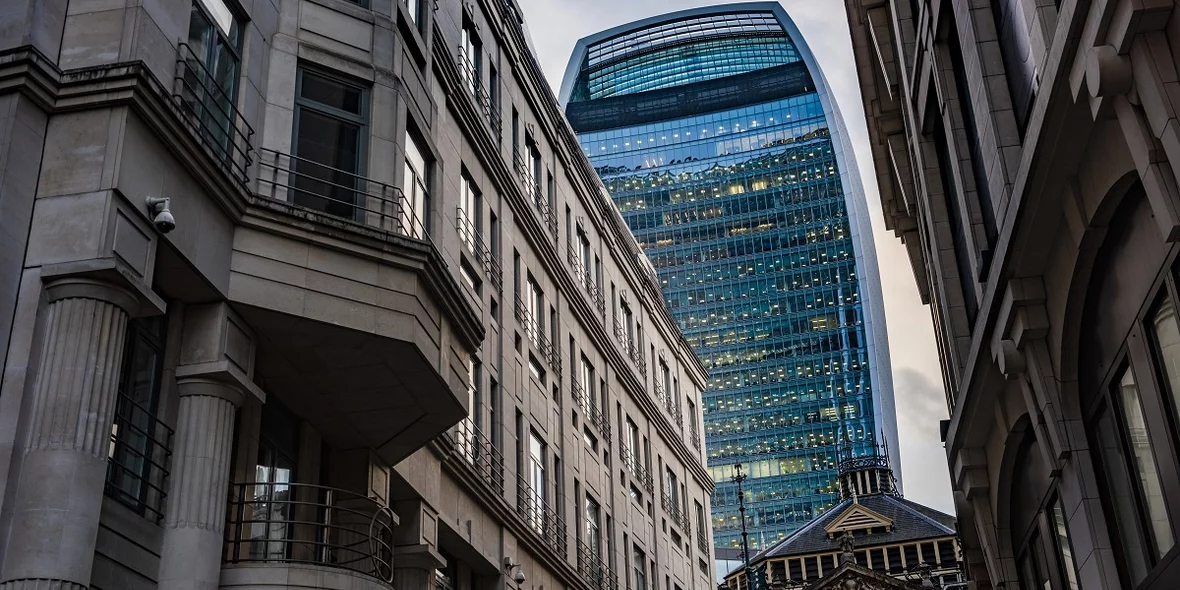
«Apartment demand is declining, but prices are rising.» The expert on the state of the UK real estate market
What are the problems the UK property market is facing, and how is this reflected in demand and prices? For how much can you buy an apartment in London and other cities in the UK today? Our expert article takes a closer look at the situation in the UK real estate market.
The housing market in the UK in recent months has been pretty unstable: interest rates are rising, and demand for property is falling. What causes this situation, and how does it impact prices? How is the rental housing market in the UK? And what developments in the market can be expected in the short and long terms? Alisa Zotimova, Founder and CEO of AZ Real Estate, elaborated on all of this.
«Now we’re actually seeing a correction after a surge in demand during the pandemic»
— According to recent reports, demand for real estate in the United Kingdom has fallen 44% year on year. Why did this happen? Does the situation affect the whole country?

— In fact, demand for residential real estate fell even more in November 2022, down 47% from November 2021. 44% is how much demand fell after the government announced the new economic plan «Mini Budget» in September. This poorly thought-out scheme, which involved injecting about £40 billion into the economy while there was already high inflation, immediately caused the pound to reach an all-time low.
The Bank of England was forced to raise the refinancing rate (now it is at 3.5%). And although the new Rishi Sunak government has largely reversed the proposed measures, the damage has been done. Mortgage rates went up, and mortgages became unaffordable for many buyers who wanted to borrow money.
«Mini budget» is not the only reason for the decline in demand and the increase in rates; rather, the plan was the last major event to affect the market. Now we are actually seeing a correction after the demand boom of the 2020–2021 pandemic, when over 2.5 million Britons sold or bought homes. The current situation has also been affected by the difficult global and economic situation, COVID-19, and measures taken by the U.K. government and the Bank of England during the pandemic.
Different regions and market segments are reacting differently to these events. People who buy less expensive homes (under £500k) are likely to suffer more from rising mortgage rates because they cannot afford the loan or get it approved. They may have to choose smaller properties and move to cheaper areas.
The demand from buyers, who do not need borrowed funds, remains. Additionally, we are receiving buy requests from both Europe and the United States. A weaker pound makes it more appealing for foreigners to invest in UK real estate.
— How has it affected prices?
— The decline in demand over the past few months has had little effect on prices so far. The latest Zoopla report for December 2022 shows that annual price growth was 7.3%. It can be seen that growth is slowing; some sellers are forced to reduce the price of properties on display. But in the statistics, these processes will most likely become noticeable closer to the end of the first quarter of 2023.
Previously, during the pandemic, housing prices rose by about 20% for two years; this happened due to an active government stimulation of the economy, announced tax incentives, and a reduced to almost zero refinancing rate.
— To give specific examples, how much does an apartment cost on average in London and other cities in the country today, and how much did the same property cost, say, a year ago?
— The latest report from the Office for National Statistics (ONS) shows that the average house price in London in October 2022 was £541,720 (about $670,000), and the year before that it was £507,704. In Manchester, the average home price in October 2022 was £235,629, up from £207,349 the year before; in Liverpool, it was £180,049 in October 2022 and £162,126 in October 2021.
«There is the capital of the country, and there is the rest of the country»
— How is the UK real estate market different from others? What are its peculiarities?
— I would highlight these two interesting points, which usually raise additional questions for foreigners:
- Ownership system. There are two types of property ownership in the UK: «freehold» and «leasehold». Under «freehold,» the owner of the property is its owner by right of possession and disposition (both the house and the land under it). This differs from the system of «leasehold»: in this case, the owner (usually an apartment in an apartment building) has the right to use the object for a long time (up to 999 years) and pays rent for the use of their share of the land under the house. Both types of ownership are common and actively used.
- Taxation. In the UK, there is no property tax, which makes the cost of ownership lower than in many other countries.
— In terms of the real estate market, is London much different from other regions?
— Of course, there is the capital, and then there is the rest of the country, and these markets are different in many ways. In the UK, there are also industrial regions that are developing rapidly, such as Birmingham, Manchester, and Liverpool. A lot of new modern housing is being introduced there.
Prices vary considerably from region to region; I’ve already talked about this above. Individual countries (and the UK consists of four: England, Scotland, Wales, and Northern Ireland) may have slightly different legislation relating to the purchase and sale, as well as taxation. For example, in Scotland and Wales, the main tax on purchases — Stamp Duty Land Tax (SDLT) — bears a different name and is collected slightly differently.
«The British market is primarily regulated by the activity of Britons themselves»
— Who buys property in the UK most often?
— The British real estate market is heavily reliant on domestic demand from Britons and UK residents, rather than external demand.
The homeownership culture in the UK makes buying a home a great life achievement, so in the long term, domestic demand is the main driver. Due to the size of the domestic market, foreigners contribute relatively little to total transactions, and their demand has little bearing on prices.
— In which regions of the UK do foreigners most frequently buy property? Are there any restrictions on buying for foreigners?
— Foreigners buy property all over the UK. According to our experience, London is often the most sought-after location due to its business and educational opportunities, as well as its rich cultural life. Many people are drawn to the sights and its rich history.
Much depends on the purpose of the visit and the visitor’s lifestyle. For example, students settle near universities, which may be outside the capital. Those who relocate due to marriage to a British man will live in the area where their spouse currently resides. Families with children may prefer to settle in the suburbs of London with good schools.
There are no special conditions or prohibitions on the purchase of real estate by foreigners; the rules are the same for everyone. As an example, all buyers must justify their sources of funds to lawyers. In general, buying property in the country — a complex process, that usually takes several months, and requires the involvement of lawyers and other professionals.
It is worth noting that buying a home in the UK does not provide any visa benefits. Properties here are bought mainly by people who already speak English and have a long-term visa or residence permit.
Mainly, Britain attracts foreign investors with its strong system of property rights and the law in general, a stable financial system, and long-term growth prospects for the capitalization of the invested funds.
— How much can one earn from real estate in the country, and what are the ways to do it?
— There are different ways of investing in real estate in the UK:
- Buying a home to rent it out (buy-to-let) is the most common way to invest in real estate in the UK. The annual return on such projects can be about 5% (before all costs and taxes).
- You can also buy a property and, after some time, sell it with an increase in value. About the yield: if you bought an apartment in London ten years ago, by now its value would have increased by an average of 78%.
- Another option is the construction and renovation of real estate. You can buy a property, make repairs or construction, and then sell it with an increase in value.
Personal experience: how to move to the UK and what to expect
— How is the rental housing market developing in the country? What is the current average rent in London and elsewhere?
— The cost of renting in the UK has risen by an average of 12% over the year (according to the December Zoopla report). At the moment, demand is 46% higher than the 5-year average, and there are 38% fewer properties available for rent. In the market, there is a shortage of quality properties for rent; this situation has long existed, and in the past six months to a year, it has only gotten worse. There are various reasons for this, but I will not go into them now.
In large cities, rental costs are growing faster; in London, for example, they rose by 17% over the year. In smaller cities, such as Oxford and York, it’s less than 8%. The average current cost of rent by city is: London — £1879 (about $2330); Manchester — £928, Birmingham — £820, Liverpool — £717.
— Based on the state of the market right now, what do you think the future holds?
— In the short term, we expect a slowdown in price growth, perhaps a slight decline. But even if the price falls by 10%, it will still remain above the pre-pandemic level. If we talk about longer-term trends, the market fundamentals, in our opinion, contribute to price growth in the long term.
Author
I am responsible for editorial work. I write expert interviews and guides.

















